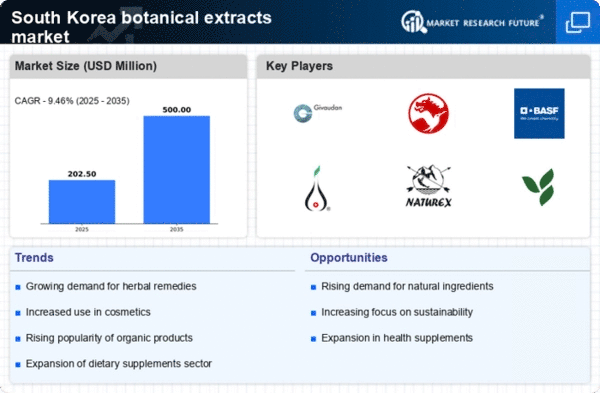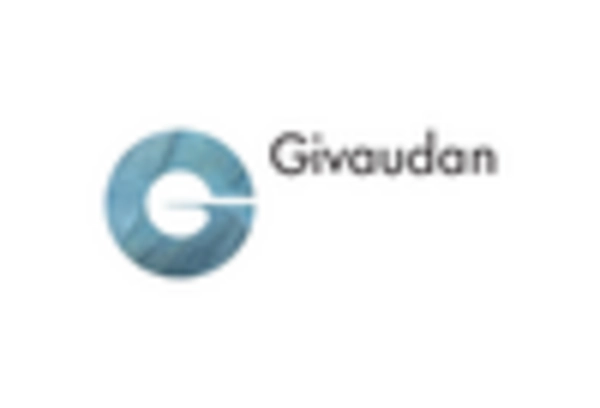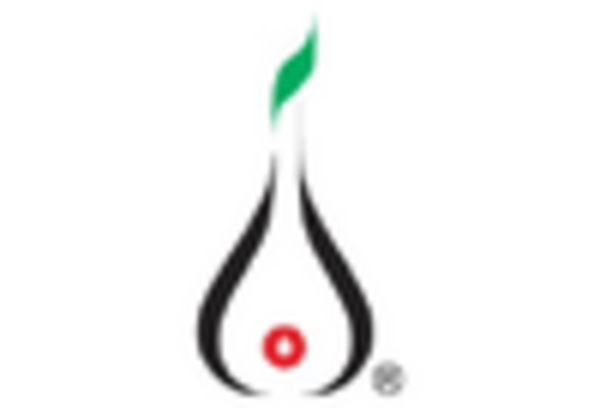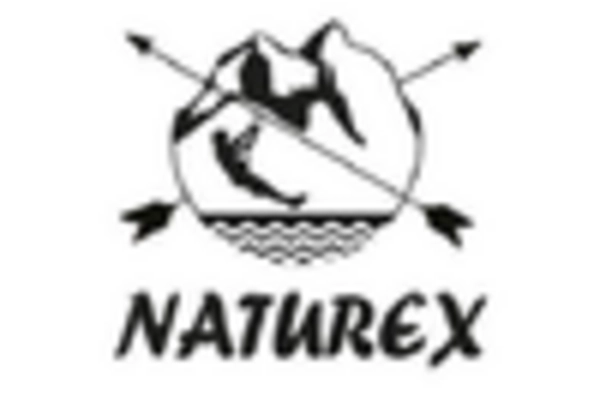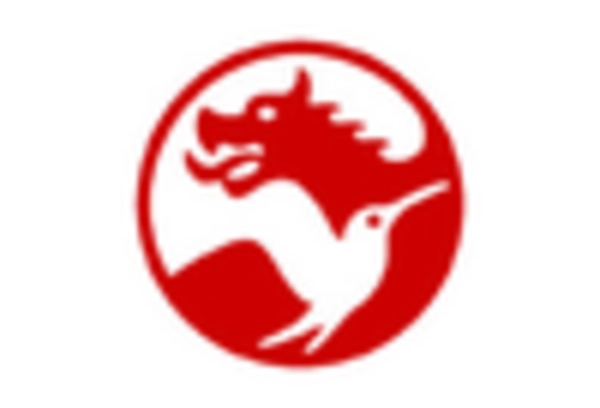Growing Health Consciousness
The increasing awareness of health and wellness among consumers in South Korea appears to be a primary driver for the botanical extracts market. As individuals become more health-conscious, they tend to seek natural and organic products, which has led to a surge in demand for botanical extracts. This trend is reflected in the market data, indicating that the consumption of herbal supplements and natural remedies has risen by approximately 15% over the past year. The botanical extracts market is likely to benefit from this shift, as consumers prefer products that are perceived as safer and more beneficial for their health. Furthermore, the rise in chronic diseases has prompted a search for preventive measures, further fueling the demand for natural ingredients derived from plants.
Expansion of the Cosmetic Sector
The cosmetic industry in South Korea is renowned for its innovation and quality, and the botanical extracts market is experiencing a notable expansion due to this sector's growth. With the increasing incorporation of botanical extracts in skincare and beauty products, the market is projected to grow significantly. Recent statistics suggest that the cosmetic market in South Korea is valued at over $10 billion, with botanical extracts accounting for a growing share. This trend indicates a shift towards natural and plant-based formulations, as consumers are increasingly drawn to products that promise efficacy without harmful chemicals. The botanical extracts market is thus poised to thrive as cosmetic brands continue to explore and utilize the diverse benefits of plant-derived ingredients.
Supportive Regulatory Environment
The regulatory framework in South Korea appears to be increasingly supportive of the botanical extracts market. Government initiatives aimed at promoting the use of natural ingredients in various sectors, including food, cosmetics, and pharmaceuticals, are likely to foster market growth. Recent policy changes have streamlined the approval processes for botanical extracts, making it easier for companies to bring new products to market. This supportive environment is reflected in the rising number of product registrations that utilize botanical extracts, which has increased by approximately 18% over the last year. As regulations continue to evolve, the botanical extracts market is expected to benefit from enhanced consumer trust and a broader acceptance of these natural ingredients.
Rising Popularity of Functional Foods
The trend towards functional foods in South Korea is emerging as a significant driver for the botanical extracts market. Consumers are increasingly seeking foods that offer health benefits beyond basic nutrition, leading to a heightened interest in products enriched with botanical extracts. This shift is supported by market data showing that the functional food sector has grown by approximately 20% in recent years. The botanical extracts market stands to gain from this trend, as manufacturers incorporate these extracts into various food products, enhancing their appeal and health benefits. Additionally, the growing trend of clean labeling and transparency in food sourcing aligns with the use of natural botanical extracts, further solidifying their role in the evolving food landscape.
Increased Investment in Research and Development
Investment in research and development (R&D) within the botanical extracts market is becoming increasingly vital. Companies are recognizing the potential of botanical extracts and are allocating resources to explore new extraction methods and applications. This focus on R&D is likely to lead to innovative products that cater to the evolving preferences of consumers. Recent reports indicate that R&D spending in the natural products sector has increased by around 12% annually, reflecting a commitment to enhancing product quality and efficacy. As companies strive to differentiate themselves in a competitive market, the emphasis on R&D could result in the introduction of novel botanical extracts that meet specific consumer needs, thereby driving market growth.


